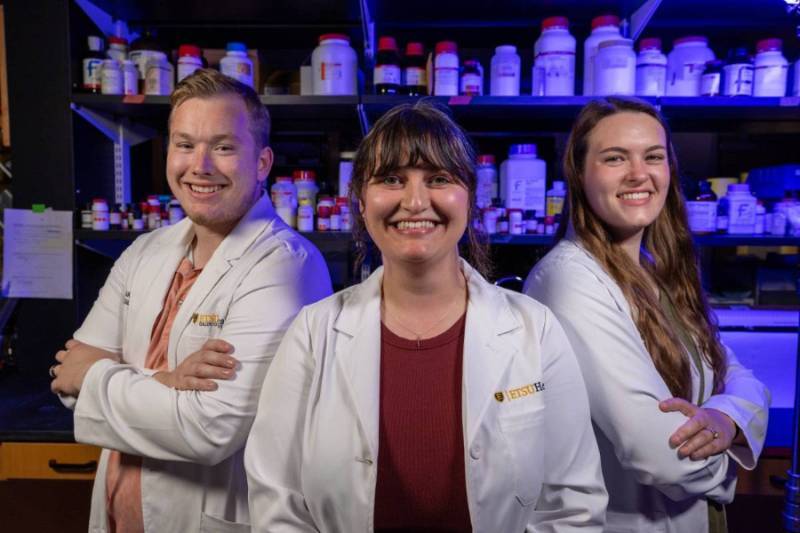Immunology, Inflammation and Infectious Diseases
The Immunology, Inflammation, and Infectious Diseases (IIID) concentration focuses study on specific aspects of fungal, bacterial and/or viral infections as well as studies of infection-derived diseases and their outcomes. Research in this concentration examines microbial mechanisms of action, pathophysiology of infections, immunobiology, T-cell regulation, and the innate immune system. Students also learn translational aspects of applying research to human diseases. Students graduating with the Immunology, Inflammation, and Infectious Diseases concentration will be highly competitive for careers at academic institutions, in industries involved in biomedical research, and at government agencies conducting, regulating, or funding biomedical research.
 Jared Casteel, Tasha Phillips, & Abigail Pyburn/BMS Graduate Program Students
Jared Casteel, Tasha Phillips, & Abigail Pyburn/BMS Graduate Program Students
"My time as a graduate student in the Immunology, Inflammation, and Infectious Diseases
concentration of the Biomedical Sciences Program has been incredibly rewarding. What
stands out most is the program's intimate nature, which has provided unparalleled
opportunities for direct engagement and mentorship with our diverse faculty. It's
a place where you truly learn to do good science, all while being immersed in a community
that champions and teaches the power of collaboration." -Jared Casteel
"As a PhD student in Immunology, Inflammation, and Infectious Diseases, I’ve been very fortunate to continue to train in an environment that encourages curiosity, collaboration, and a love for lifelong learning and growth. I am fortunate to have mentors that encourage questions and discussion while allowing me to make mistakes and learn through the scientific process. This has been an invaluable opportunity for me to develop my skills as a researcher and a mentor myself." -Tasha Phillips
"Being part of the Immunology, Inflammation, and Infectious Diseases concentration has been a deeply rewarding experience, both personally and professionally. Having completed my undergraduate degree at ETSU and now continuing my PhD here, I’ve grown within a supportive and collaborative community that truly values scientific curiosity. Working on Salmonella pathogenesis and cyclic-di-GMP signaling has challenged me to think critically and creatively, and I’m grateful for the mentorship and camaraderie that continue to shape my development as a scientist." -Abigail Pyburn
For more information about the IIID concentration curriculum, please contact Dr. Valentin Yakubenko- yakubenko@etsu.edu
 Stout Drive Road Closure
Stout Drive Road Closure